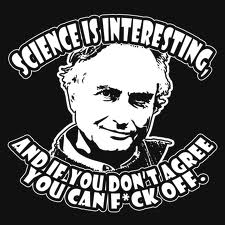The feeling of awed wonder that science can give us is one of the highest experiences of which the human psyche is capable. It is a deep aesthetic passion to rank with the finest that music and poetry can deliver. It is truly one of the things that make life worth living and it does so, if anything, more effectively if it convinces us that the time we have for living is quite finite.” – Richard Dawkins, Unweaving the Rainbow: Science, Delusion and the Appetite for Wonder. (Emphasis mine)
The ancient Greek philosopher Epicurus echoed the same objections that can be seen in Dawkins’ writings today. Some things don’t change much. Epicurus held a nearly identical view of the afterlife or “second life” as Dawkins does now. He thought that mankind would be better served if each man paid more attention to making this life better rather than wasting time and resources trying to appease non-existent “gods” in the hope of obtaining better crops or greater wealth (self-interest) or of being accepted by such deities in the next life (his real objection). Epicurus believed that this preoccupation with the afterlife was one of the chief problems that kept mankind from enjoying the life they live in the here and now.
Furthermore, Epicurus suspected that the miserable, mean, harsh and impoverished life most people lived was caused partly by their preoccupation with the afterlife.
Of course, this assertion does not make it so, but it still continues to be a common belief among atheists and continues to see the light of day in the writings of Dawkins. For example…
Be thankful that you have a life, and forsake your vain and presumptuous desire for a second one.” ― Richard Dawkins
There is something infantile in the presumption that somebody else has a responsibility to give your life meaning and point… The truly adult view, by contrast, is that our life is as meaningful, as full and as wonderful as we choose to make it.” ― Richard Dawkins, The God Delusion
It is clear that his use of words like “vain and presumptuous”, “infantile” and “The truly adult view” are used to convey the impression that his views are intellectually superior to the views held by theists without providing the reasons for his position laid out in cogent argument. It is typical of the common response one finds on most blogs when an atheist responses to a theistic post. Their posts are usually peppered with condescension, ad hominem disparity and aspersions of the vilest kinds. These kinds of responses add nothing to the discussion of the post itself yet their authors often insist that their position is clearly the rational one. Of course there are the occasional thoughtful exceptions but it is not the norm.
Dawkins’ polite disparagement when writing about the “second” life gives way to the more common umbrage salted with explicatives when publicly speaking and takes on a much more derogatory tone. His content at times is not much better than the “God is a genocidal maniac so F*** You” kind of thing the average anti-Christian blogger brings to the table as an intellectual offering. He simply assumes what he says should be taken at face value, that he is always correct in his historical assertions, and tops it all off with a little vitriol.
Observations: It does not seem to matter to Dawkins that his beliefs are contrary to what is known about the world.
As pointed out in previous posts…
- It is never observed that matter has incorporeal attributes in the real world. In other words, matter never demonstrates attributes such as reason, ideas, desire, nor does it make choices, engineer a bridge, fall in love, or appreciate music. If matter and energy are all there is, matter must cause these things to come into existence. In short, the effect must be greater than the cause, which is another way of saying I believe in magic rather than science.
- While it is observed that matter can be used as a carrier of information (via Structure), it is never observed that matter is the source of the information that it may carry.
- When ever the source of information can be determined, it is always because that structure that carries it has been imposed upon matter from outside of itself.
- When we can determine its source, it is always because a mind has imposed a structure upon matter to carry information. Basically an force outside the matter itself has ordered and arranged matter so that information can be embedded.
- When matter is found to carry information it is for the purpose of communication.
- Information is really the lowest level of mind. As far as is known, such things as desires, perceiving the value of an object such as a nice purse or a fine watch, motives of passion or pleasure, love, loyalty, honor, hatred, bitterness, gratitude, etc., cannot be explained by the presence of information alone. And information cannot be explained by matter alone. These are difference categories of phenomena.
Thus, it is always the case, when the source is known, that information is from an external source that is not material in nature. Dawkins and some atheists are aware of this, so there have been concerted efforts to fabricate explanations for this source from within the material realm itself. While at the same time they employ every form of non-material faculty of their being (such as ideas, logic, argument, appeal to emotions, etc.) in order to persuade you their opinion is the correct one. Opinion being another of those non-material incorporeal phenomena that should not exist if reality is as they say.
We could go on about this but, as I said, this subject has been covered HERE and HERE and HERE and HERE and HERE and HERE and HERE.
The highest form of meaningful life?
But this is not really the point Dawkins is driving at in the above quotes. Dawkins is asserting that hoping in a life beyond the grave is a vain one, so one should only live for the here and now, the existential experience. So what is supposed to give this very temporary life of ours its grand meaning and significance?
According to Dawkins it is the wonder of discovery that science provides. This “wonder”, this “feeling” of awe that is to be derived from scientific investigation is on par with the elation that one might experience while listening to music, going to the opera, a trip to the art museum, or standing in the presence of a great poet.
This “feeling of awed wonder”, this “deep aesthetic passion” is not a phenomenon of matter. It is incorporeal in nature. It has no mass or volume. One cannot measure its hardness, taste it, or perceive its color. Even so, the experience that is supposed to provide our meaningful existence is simply feeling a certain way. It is a gratification of a desire. It is an attempt to provide or create a certain state of feeling (the awed wonder) and nothing more.
It is also important to remember that these emotional states are to be treasured because we are very temporary in nature or as Dawkins puts it, “the time we have for living is quite finite”. Dawkins does not prove his point about that because we all know that we live and die, at least, the material aspect of us does. What he cannot and therefore does not explain is how matter comes to value this state of emotion in the first place, he just assumes that it does because he does. And since he is nothing more than matter and energy flowing to and fro, temporarily coming together to form himself before moving on, it must have these unobserved magical qualities.
However, Dawkins assumes that the emotional bingeing that he hangs the meaning of life upon is the same for everybody. He elevates his “feeling of awed wonder” to the top of the charts without any criteria but the satisfaction he gets from his own gratification. Since that is his best experience possible, it must be the best that can be had by all and that is what the whole of humanity ought to pursue.
The best a D. Phil can offer?
So this is what a Doctor of Philosophy from Oxford comes up with, self-indulgence, emotional gratification, a temporary state of wallowing in a feeling. Setting aside that he cannot explain why this is so. He cannot explain how these feelings even exist if the world is nothing but matter and energy. It seems that his education has simply taught him how to hide his nakedness with clever words used to obfuscate the baseless assumptions he makes about “reality”.
The incorporeal, these “feelings”, are to provide meaning for our material existence. Yet he declares hope in a second life, where it is said that incorporeal existence continues, is “vain” and “presumptuous”? This is jaw dropping stupidity at its finest. What Dawkins ought to do in order to truly maximize his experience is to drop some ecstasy the next time he experiences this “awed wonder”.
Kidding aside, if meaning is found in some emotion and its gratification, why it is assumed, as Dawkins clearly does, that music or science can be universally relied upon to provide its highest most preferred form? What compels anyone towards this particular emotional state as opposed to any other? Why not shopping for jewelry for instance? Or power? Or Wealth? Or torture? Or hording? So what if it harms someone else. Why would an object composed of mere matter care about that? So what if one’s desires are or aren’t met. Get used to disappointment.
Life is pain, Highness. Anyone who says differently is selling something.” The man in black, The Princess Bride.
Most people in the world do not have the opportunity that Dawkins takes for granted. And they find temporary pleasures in other things more available to them. When people face the end of their temporal existence and they know they must leave this world do they really crave one more experience of “awed wonder” that science can provide? Or do they wish to be surrounded by those they love?
But this too is mere gratification, a desire to be comforted or the desire to be loved one last time before departing this world is in principle no different than Dawkins desire to want “awed wonder”. If our incorporeal existence terminates here, as Dawkins wants to believe, it is all vain. His attempt to find meaning within ourselves is all that he or anyone else can come up with if life ends at death. It is only temporary distraction from the vanity of life, no better than the pleasure derived from enjoying a good hoagie from Philadelphia.
Self-indulgence and gratification of desire need not take the arbitrary ranked “highest experiences” path that Dawkins suggests. Dawkins guidance, more often than not, goes unheeded. He simply provides no real reason for the rest of us to assign scientific awed wonder as the pinnacle of human experience. Never mind the absurdity of an over-educated elitist attempting to find meaning for his material existence in the metaphysical and non-material attributes of his nature. The common man may not know how to articulate the contradiction he sees in Dawkins’ own vain attempt to find meaning but he senses this contradiction never the less.
















